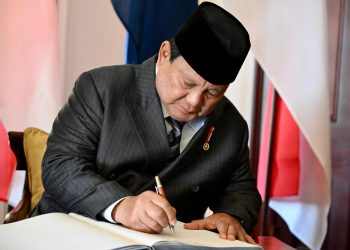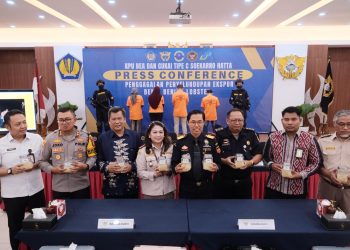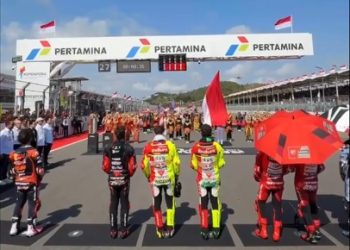Jakarta, Indonesia Sentinel — In a landmark decision, Indonesia’s Constitutional Court (Mahkamah Konstitusi or MK) has abolished the 20 percent presidential threshold outlined in Article 222 of Law No. 7 of 2017 on General Elections. The ruling, announced on Thursday, January 2, 2025, requires lawmakers and the government to amend the Election Law to ensure proportionality in the number of presidential and vice-presidential candidates.
Landmark Ruling
The court’s deputy chairman, Saldi Isra, emphasized the need for legislative revisions to prevent an overabundance of candidates, which could compromise the essence of direct elections. “The legislature must design regulations to avoid excessive numbers of presidential and vice-presidential candidates that could undermine the democratic process,” Saldi stated during the verdict at the Constitutional Court in Jakarta.
Key Guidelines for Revisions
The court issued specific guidelines for lawmakers to consider during the revision of the Election Law:
- Eligible Political Parties: Only parties officially registered as election participants may nominate presidential and vice-presidential candidates.
- Threshold Removal: Nomination will no longer be tied to the percentage of parliamentary seats or national votes obtained in previous elections.
- Non-Dominance Rule: Political coalitions must not dominate the nomination process, ensuring more options for voters.
- Sanctions for Non-Participation: Political parties failing to nominate candidates will be barred from participating in the next election.
- Public Participation: The revision process must include meaningful public engagement, including non-parliamentary parties.
Overcoming Historical Challenges
The court’s decision is the culmination of 27 legal challenges to the presidential threshold since 2017. Previous rulings had either rejected or dismissed such requests. Notably, election and democracy activist Titi Anggraini, who filed one of the earlier challenges, called the decision a “historic milestone” for Indonesia’s democracy.
Implications for Indonesia’s Political Landscape
The now-invalidated Article 222 required presidential and vice-presidential candidates to be nominated by parties or coalitions holding at least 20 percent of parliamentary seats or receiving 25 percent of the popular vote in the prior election. Critics argued this threshold stifled competition and limited voter choice, often resulting in only two candidates.
The Constitutional Court observed that such limitations exacerbated polarization and could potentially lead to single-candidate elections, as seen in some regional elections. The court expressed concern that this could erode Indonesia’s democratic diversity and threaten national unity.
Broader Context
The ruling aligns with growing calls for electoral reforms to enhance voter choice and participation. The court noted that maintaining a high threshold risked undermining Article 6A(1) of the Indonesian Constitution, which mandates direct elections to reflect the people’s sovereignty.
By abolishing the threshold, the court aims to broaden candidate options and reduce societal polarization, thus reinforcing the democratic process.
Jokowi Listed in OCCRP Corrupt Person of the Year’s Finalist
Path Forward
Lawmakers now face the task of revising the Election Law to comply with the Constitutional Court’s ruling. The revisions will need to balance proportional representation, prevent excessive candidacies, and uphold the principles of democratic inclusivity.
The ruling is seen as a pivotal step toward a more representative electoral system in Indonesia, potentially reshaping the nation’s political dynamics ahead of the next presidential election.
(Becky)


























